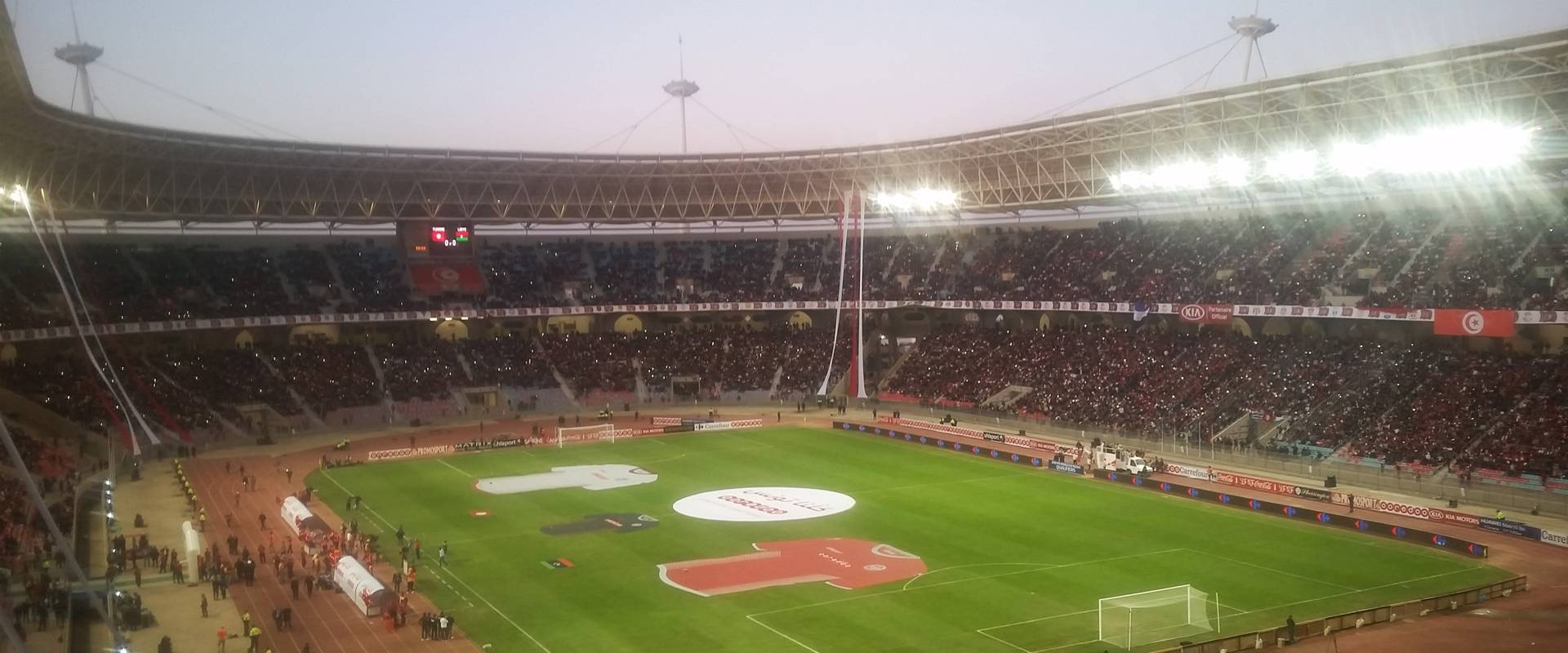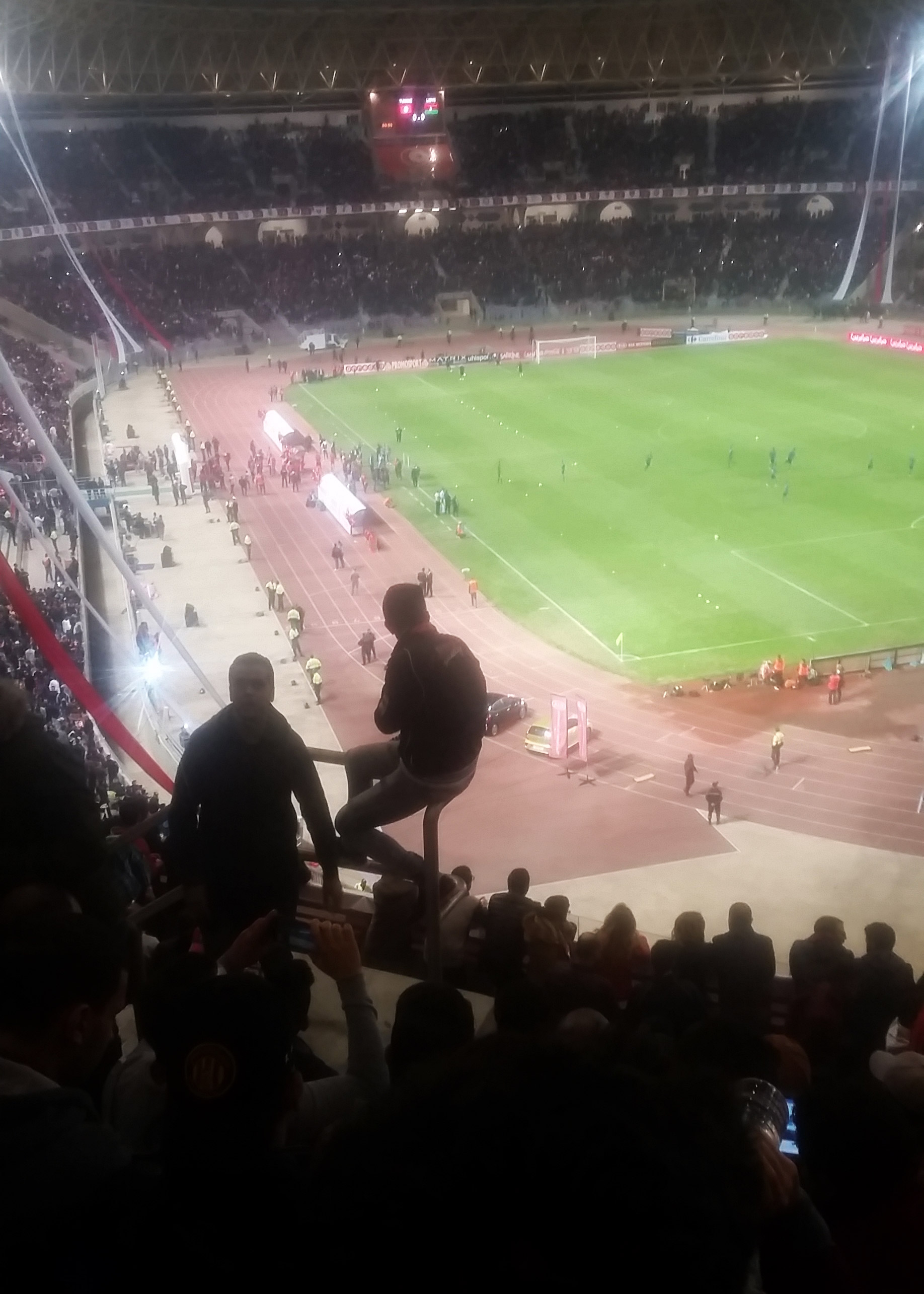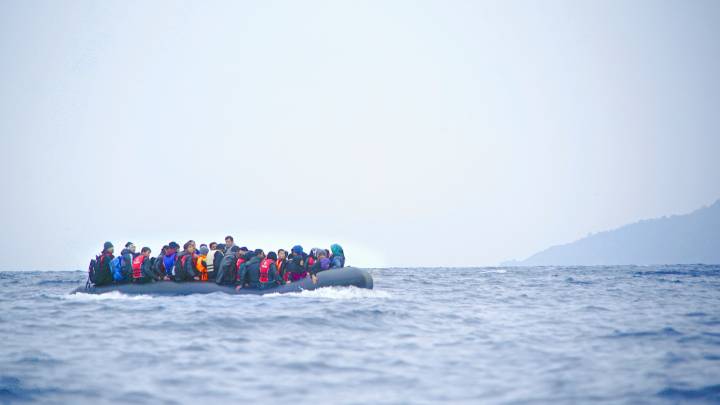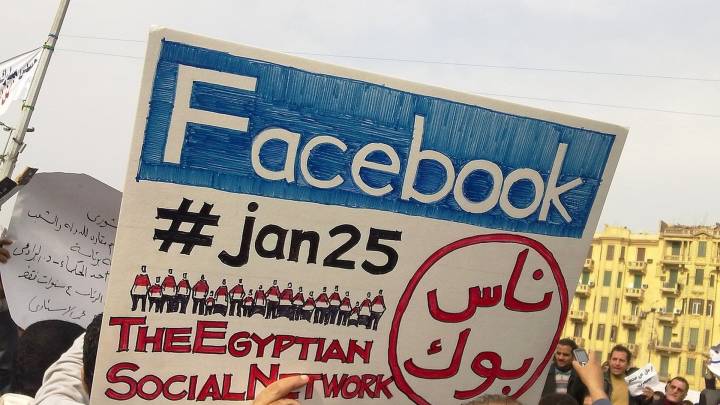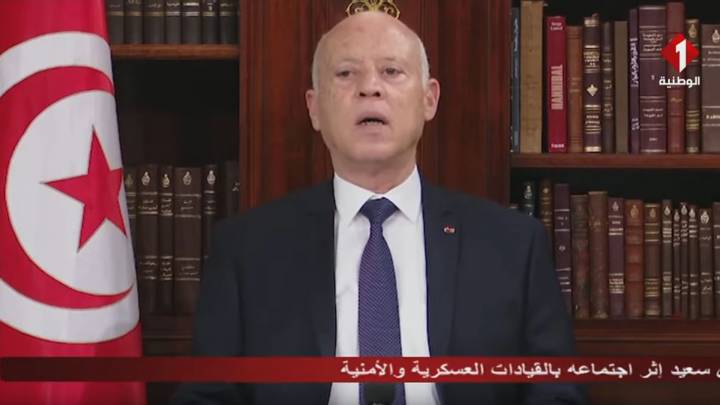In Libya, football is a rare space without political issues and free of tension.
Despite the relative warmth of the quiet November evening, it’s cool inside the sprawling Stade Radès in Tunis, where a sea of red-clad fans cheer, chant and ululate for their national team. Lost in the crowd is a smattering of visiting Libya fans, unsure how to react to the carnival atmosphere of an undeniably underwhelming game.
It doesn’t really matter where you’re from or who you support in the war.
For Tunisia, anything other than a loss will see them progress to the World Cup in Russia. For Libya, which regardless of the result has no chance of advancing, the match promises nothing but a valuable 90 minutes of international practice. On the field, Libya seem to defer to their neighbour’s ambitions, leaving the match scoreless and the army of Tunisian fans exploding in excitement.
Munir Alashhab from Tripoli wishes them well. “I’ll be supporting them in Russia, just as I’ll be supporting all the Arab teams.” Four Arab teams have made it through to the World Cup in Russia in 2018, an unprecedented achievement in a region better known for its strife than its sporting prowess. Libya will not be among them.
From the near farce of former autocrat Muammar Gaddafi’s third son Al-Saadi’s time with home team Tripoli (commentators were forbidden from mentioning any other player’s name) to the present, football retains the power to unite in a country that is today wracked by deep divisions - between regions, cities and tribes. Six years of near constant conflict, power cuts and cash shortages have starved Libya’s domestic football of the continuity that is the lifeblood of any league. However, the national team is a unique point around which Libya’s warring factions can happily coalesce.
Anas Elhotey sits next to Munir in a nearly empty lakeside café in north Tunis. Anas is from Benghazi, the stronghold of Khalifa Haftar, Tripoli’s principal rival in Libya’s never-ending power game.
“It doesn’t matter what’s happening,” Anas says. “It doesn’t matter if there’s a war. If you arrange a football match between Tripoli and Benghazi, people are going to come. You can feel it [during the big matches], everything’s quiet. Everyone’s watching TV. Football can play a large part in solving conflict.”
In 2014, at the peak of Libya’s chaotic civil war, the national team won the African Nations Championship. Munir begins to laugh at the memory. “I was watching it on the big screen at Algeria Square in Tripoli. It was the final and it went to penalties. On the final penalty, when Libya won, it went crazy.”
Munir describes the scene, the fireworks, the celebrations, the women who never ventured out of the house cheering in the street. “Everyone was hugging each other. There were people there from either side of the conflict and it didn’t matter. Later, when the national team returned, everyone turned out to Martyrs’ Square to welcome them. None of the politicians could have got a crowd like that. That’s the power of football.”
The ban on attending matches has forced fans to gather in cafés to watch games taking place in empty stadiums, perhaps just metres away
However, with Libya’s currency in free fall, the security situation dire and power cuts stretching almost into days, Libya’s league supporters have a difficult time. Matches are now played in daylight, with supporters barred from attending for security reasons. Mohamed speaks about one league match during the summer when, robbed of electricity and air conditioning, the dressing room became so unbearable that the teams were forced onto the pitch to continue their team talks there.
The challenges that come with playing football in a war zone aren’t limited to the domestic league. The national team is affected too.
“The circumstances aren’t good,” Anas says. “We’re having to play our home matches in Tunisia. If we could train and play in Libya, we’d be doing much better. Libyan fans are very loud, we’re very passionate. That would make a big difference, I know it.”
Jeabrel Jelkaf has also made the short journey to Stade Radès from where he is staying in Tunis. He comes from Wahat, a five-hour drive south of Benghazi. He says: “Before 2011, people had more time, there was less to worry about. The mood was really more open to supporting football. It’s different now. The mood has changed.”
Libya’s travails have drained much of the enthusiasm for the local league. Likewise, the ban on attending matches has forced fans to gather in cafés to watch games taking place in empty stadiums, perhaps just metres away. However, irrespective of the difficulties, football at all levels offers fans a temporary reprieve from the frustrations and violence of life in contemporary Libya.
“At least in Wahat, if I go and see a match, even in the second or third division, no one is thinking about the security situation. It doesn’t really have a place there,” Jeabrel says. “The security agencies don’t really care about football.”
By way of example, he points to a recent match involving three of the country’s warring factions. “Al-Ahly Benghazi recently played a game against Al-Ittihad from Tripoli, in Zuwarah, without anything happening.”
That freedom from the country’s shifting alliances of militias and government security agencies finds full fruition in support for the national team, an opportunity for the country to present a version of itself untainted by conflict and anarchy.
“At national games, it doesn’t really matter where you’re from or who you support in the war,” says Jeabrel. “Football is a space without politics or political issues. It’s free from the tension. Despite the differences in politics and allegiances, we have sport, and sport brings people together.”

